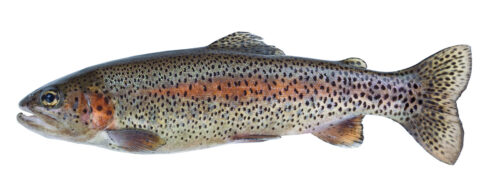A Washington state jury on Wednesday awarded the Lummi Indian tribe $595,000 over the 2017 collapse of a Cooke Aquaculture net pen, but court documents show the amount was much less than the $2 million it asked for, in addition to unspecified damages.
The lawsuit stems from the salmon escape incident at Cooke Aquaculture’s farm near Cypress Island in Washington State on August 18, 2017. A state investigation put the number of escaped salmon from the net-pen collapse at 250,000.
The King County Superior Court on Wednesday granted the tribe $595,000 on its claims of negligence and unjust enrichment against Cooke. However, it declined to award them on their claims that their culture was damaged by the escape of the fish from Cooke’s farm site.
Theory rejected
The Court also declined to award damages to the plaintiff on their claim that the escaped fish harmed the wild salmon population.
During the four-week trial, the onus was on Cooke Aquaculture to prove that Atlantic salmon from the collapsed net pen (Site 2) were no longer present in local waters after August 20, 2018 – which is one year after the incident.
Cooke’s expert witnesses presented the science at the trial in front of the judge and the jury that proved that non-native Atlantic salmon cannot survive and colonize in Pacific waters and caused no harm to native populations.
Cooke asserted during the hearing that any claim of “nuisance” by the plaintiff ended years before this lawsuit filed because the non-Native Atlantic salmon did not survive in local waters.
When members of the jury were asked in the jury form whether Cooke was able to prove that Atlantic salmon from the collapsed pen were no longer present in local waters, the jury answered “yes.”
The Court also declined to award $1-million dollars in damages to the tribe for the cost of future monitoring of the Puget Sound because there’s already a lot of regular monitoring being done by different agencies.

“We understand that salmon is sacred to the Lummi Nation’s ancestral tradition, tribal mythology and living culture. We accept this decision and will honour the amount as stated. We appreciate the jury for its thoughtful deliberations,” Joel Richardson, Vice President Public Relations at Cooke Inc, told SalmonBusiness.
“We look forward to continuing dialogue with the Nation to understand their perspectives and needs. Cooke Aquaculture Pacific remains committed to exploring ways we can collaborate with the Lummi Nation to ensure that its fishers have wild fish to harvest for generations. As a company with both wild and farmed fish interests, we share a commitment and expertise that we believe can be beneficial to the Lummi Nation.”
Cooke converts farms
Despite the science, Washington State banned the farming of non-native fish – essentially Atlantic salmon – in local waters in March 2018, less than a year after salmon-escape incident. 
Canadian company Cooke Aquaculture is the only fish farming operation affected by the law. The company then applied to grow steelhead in its farms in Washington state. In January 2021, local authorities granted Cooke a five-year permit to raise sterile, all-female steelhead at four of its former salmon net-pen sites.
A year later in January 2022, the Washington State Supreme Court ruled unanimously to reject a group of environmental organizations’ arguments and upheld Cooke’s permit to farm steelhead.
The Court found that farming of steelhead would not have probable, significant adverse impacts on the environment and dismissed all of the Wild Fish Conservancy’s arguments regarding possible adverse environmental impacts.
Among their arguments rejected were about disease and that in the case of disease outbreaks in net pens, the Court said “there is limited evidence that these transmissions result in disease in the wild population.”
The “transmission from farmed Atlantic salmon to wild salmonid populations presents a low risk and the transmission from farmed steelhead presents the same or even lower risk,” the US Court said.









